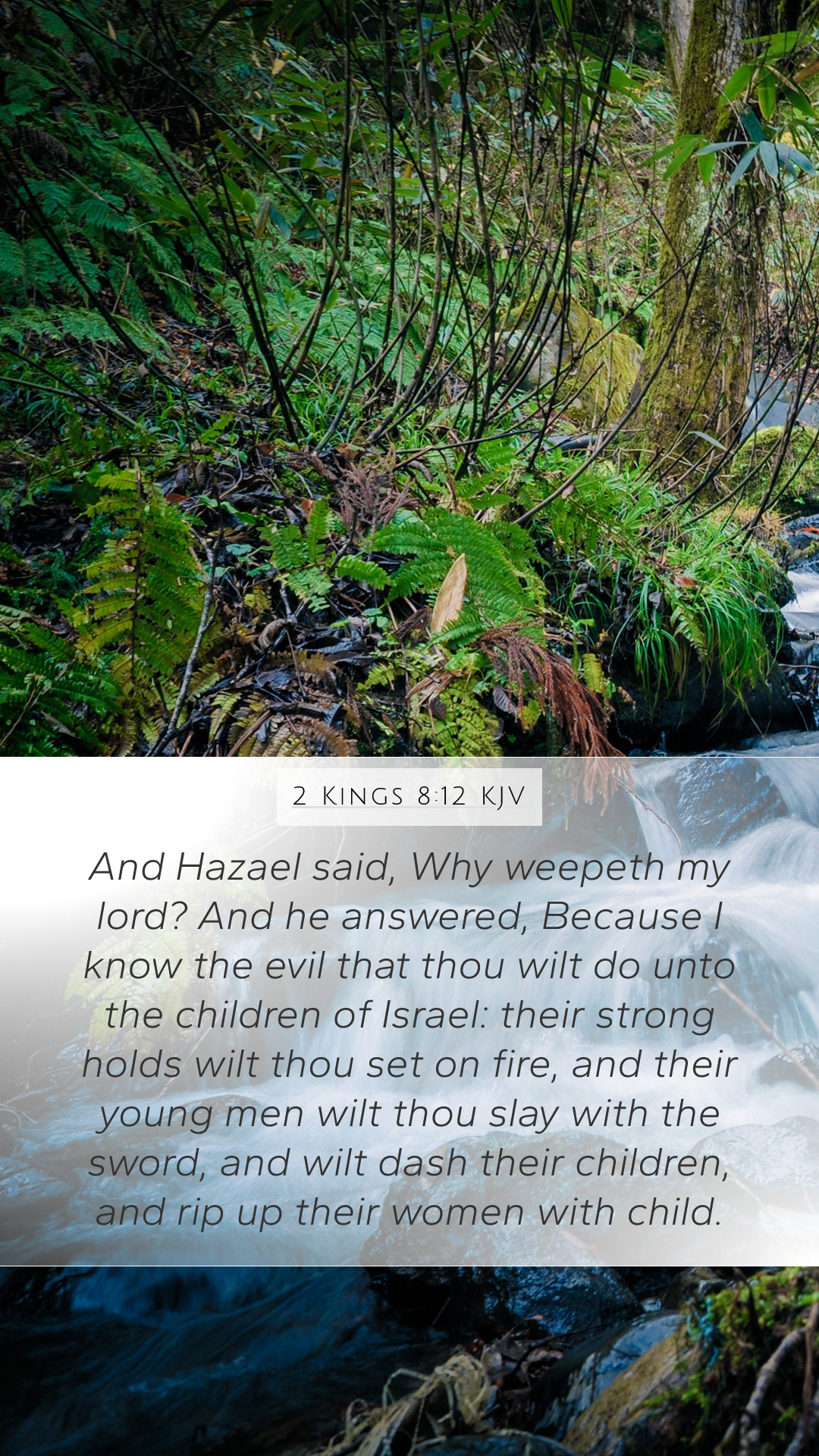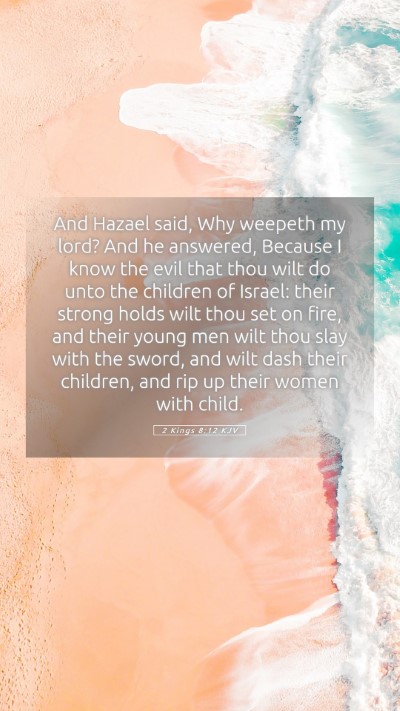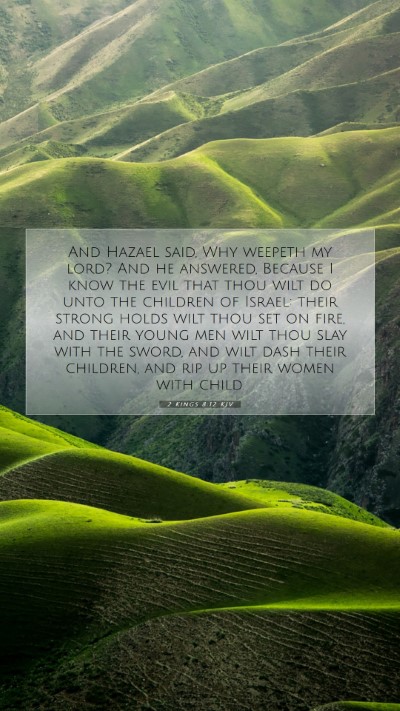Old Testament
Genesis Exodus Leviticus Numbers Deuteronomy Joshua Judges Ruth 1 Samuel 2 Samuel 1 Kings 2 Kings 1 Chronicles 2 Chronicles Ezra Nehemiah Esther Job Psalms Proverbs Ecclesiastes Song of Solomon Isaiah Jeremiah Lamentations Ezekiel Daniel Hosea Joel Amos Obadiah Jonah Micah Nahum Habakkuk Zephaniah Haggai Zechariah MalachiVerse
2 Kings 8:1 2 Kings 8:2 2 Kings 8:3 2 Kings 8:4 2 Kings 8:5 2 Kings 8:6 2 Kings 8:7 2 Kings 8:8 2 Kings 8:9 2 Kings 8:10 2 Kings 8:11 2 Kings 8:12 2 Kings 8:13 2 Kings 8:14 2 Kings 8:15 2 Kings 8:16 2 Kings 8:17 2 Kings 8:18 2 Kings 8:19 2 Kings 8:20 2 Kings 8:21 2 Kings 8:22 2 Kings 8:23 2 Kings 8:24 2 Kings 8:25 2 Kings 8:26 2 Kings 8:27 2 Kings 8:28 2 Kings 8:29

